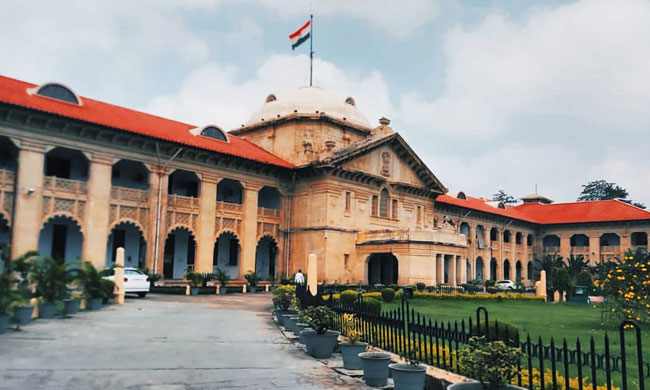Jahanvi Agarwal
The Supreme Court has taken a significant step by staying the Allahabad High Court’s order that deemed the Uttar Pradesh Board of Madarsa Education Act, 2004, unconstitutional and contrary to secular principles. Chief Justice DY Chandrachud, J B Pardiwala and Manoj Misra, issued notices to the Centre and the Uttar Pradesh government in response to a plea challenging the high court’s decision.
The Bench emphasized the regulatory nature of the Madarsa board’s objectives and expressed doubts regarding the High Court’s stance that establishing such a board would violate secularism. “The object and purpose of Madrasa board is regulatory in nature and the Allahabad high court is not prima facie correct that establishment of board will breach secularism,” stated the bench.
The Allahabad High Court struck down the 2004 Act saying it was “unconstitutional” and violative of the principle of secularism. The Court was hearing a petition challenging the constitutionality of the UP Madarsa Board as well as objected to the management of madrassas by the Minority Welfare Department, rather than the education department.
Earlier, the Lucknow bench of the Allahabad High Court, responding to a writ petition filed by Advocate Anshuman Singh Rathore, had declared the Act as ultra vires and unconstitutional.
The Bench directed the state government to integrate students studying in madrasas into regular schools. Justices Vivek Chaudhary and Subhash Vidyarthi, in their ruling, expressed that the state lacked the authority to establish a board for religious education specifically catering to one religion and its associated philosophy.
The court’s decision was based on the contention that the Madarsa Act, 2004, focused solely on promoting and imparting education related to Islam, its principles, instructions, and philosophy, while neglecting modern subjects and offering limited options to students.
The impact of this order would have been significant, affecting approximately 200,000 students enrolled in both recognised and unrecognised madarsas across Uttar Pradesh, as highlighted by the state madarsa board.
Case Name: Anjum Kadari and another v. Union of India, Managers Association Madaris Arabiya UP v. Union of India and connected matters.
Dairy Number: 14432-2024, 7821/2024 and other connected matters.
Bench: Chief Justice DY Chandrachud, J B Pardiwala and Manoj Misra.

